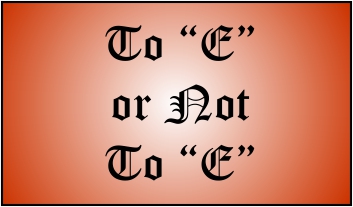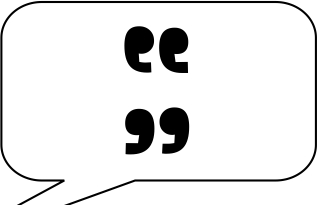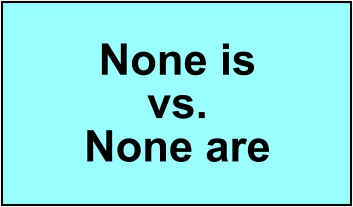Category: Spelling & Grammar Rules
Judging or Judgeing? Desirable or Desireable? Argument or Arguement? A word that ends with a silent “e” can present a challenge when you try to make a new word by adding a suffix after it (letters added to the end of a word). Do you keep the “e” or drop it? For example, when you want …
Her Style Was Most Unique… NOT! A common usage mistake in English is to use the word “unique” in a way that makes the noun it modifies seem not unique. When we say “most unique” or “very unique” about something, what we’re really saying is the thing isn’t unique at all. The word “unique” means something …
Do commas, periods, colons, semi-colons, exclamation points and question marks go before or after quotation marks? There are many different ways to use quotation marks and, in this tutorial, we’ll look at sentence punctuation in relationship to quotations. In other words, does the comma, period, question mark or exclamation point come before or after the quotation …
Loan and lend are misused so frequently – even in print and TV advertising – that it’s no wonder so many of us get the word usages mixed up. Loan is a noun; lend is a verb. That’s the bottom line. Loan is a noun: I asked the bank for a loan. Lend is a verb: Will …
Singular Verb or Plural Verb? What are the rules? Do we use a singular or plural verb with these words: None Either Everyone Neither Nobody Someone Here’s the answer. When “none” means “not one” or “no one,” we use a singular verb following it. For example, “None of the presidential candidates is worth voting for.” The singular …
When to use affect vs. effect is confusing – for good reason. Since the 1400s, these words have been more or less interchangeable, with meanings passing back and forth between them. Here’s today’s accepted word usage. Affect “Affect” is mostly used a verb that means “to influence” or “to change.” The state of the economy can …
A common word usage question is when to use “lie” versus “lay.” Here’s a quick tutorial with the meanings and rules for lie and lay. LIE: One usage of the verb “lie” means “to recline” I am going to lie down on the sofa for awhile. Watch the lion lie down on the grass. However… the …
Do you sometimes choose the wrong spelling for these two words that sound the same: “whose” and “who’s?” Here are the spelling rules to remember: “Whose” is an adjective that essentially asks a question about the ownership of something: > Whose shoes are they? > Whose science project won? > I don’t know whose idea that was. …
Many people get confused by the three different spellings for these three words that sound exactly the same: their, there, and they’re. Here are the rules. “Their” is a possessive, third person, plural adjective relating to “something belonging to them” – as in: their house, their political party, their stupid rules of grammar – and the entities …
Are you unsure when to use an apostrophe for the word “it’s?” Here’s the spelling rule for its versus it’s. This spelling mistake is so common now, it has everyone second-guessing which one is correct. “Its” without an apostrophe – is a possessive, third person, singular adjective that typically relates to something other than a person. The noun …










